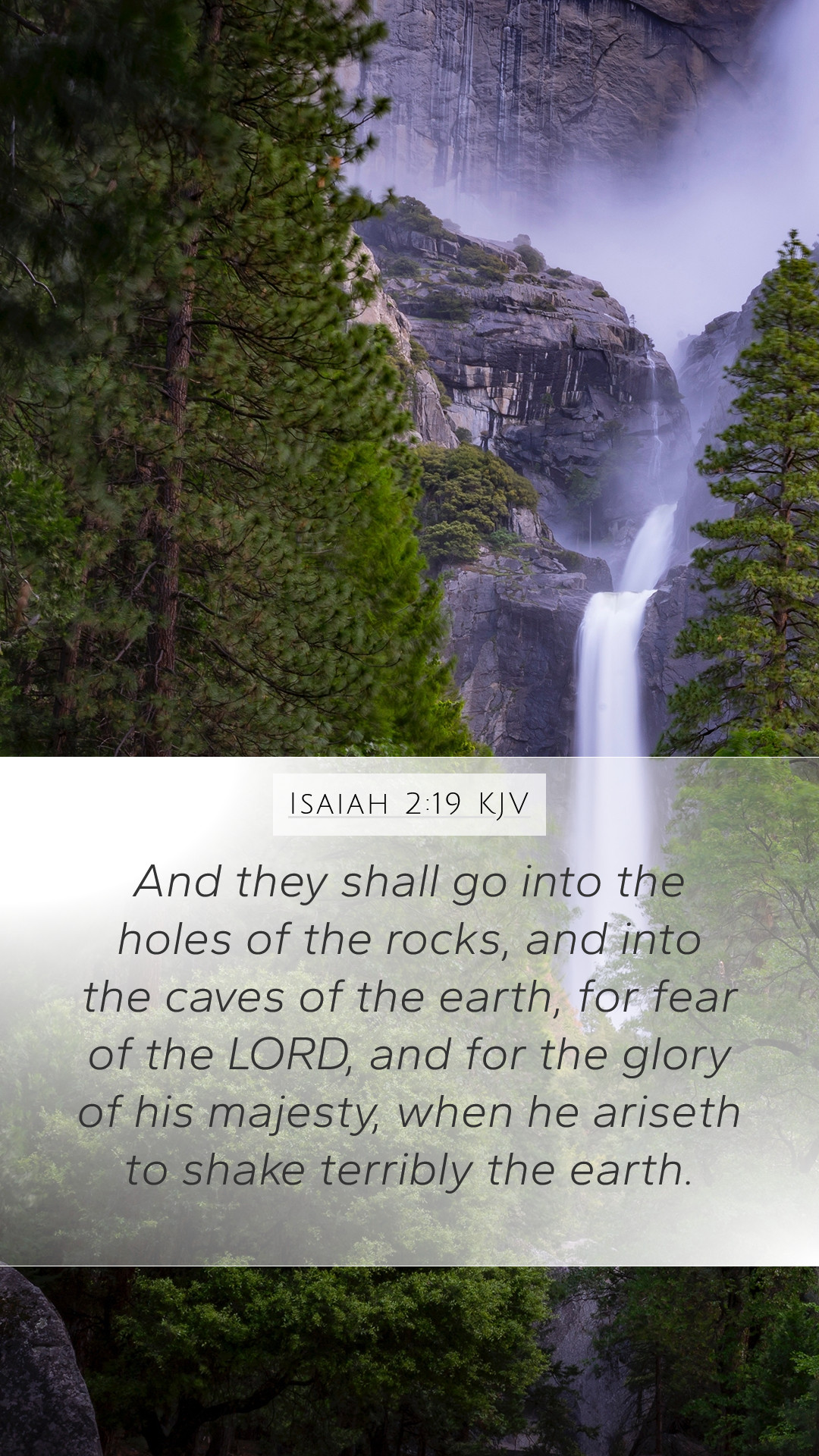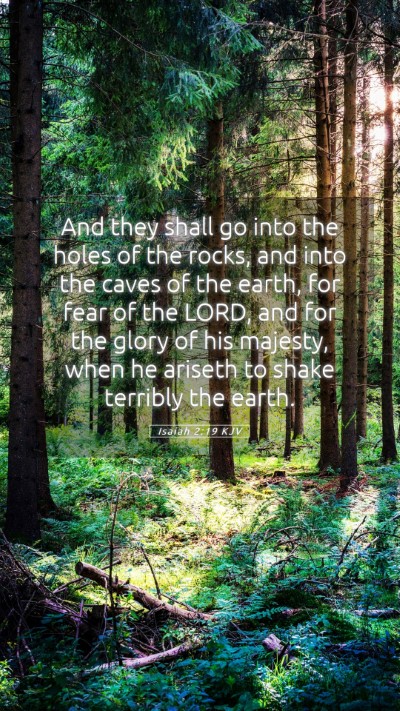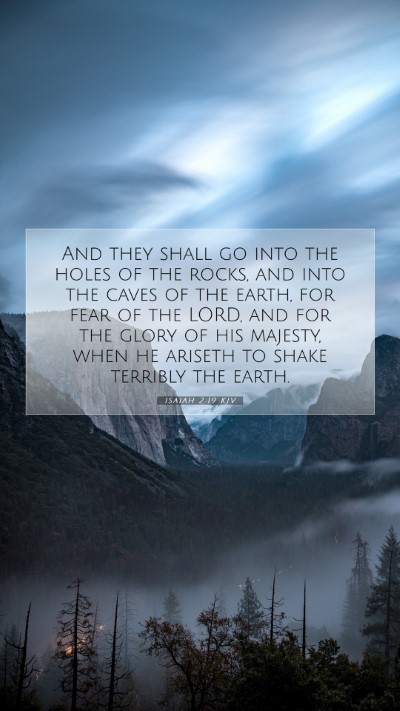Understanding Isaiah 2:19
Isaiah 2:19 states, "And they shall go into the holes of the rocks, and into the caves of the earth, for fear of the Lord, and for the glory of his majesty, when he ariseth to shake terribly the earth." This verse provides profound insight into the human condition when faced with divine judgment and fear.
Bible Verse Meaning and Context
To grasp the meaning of this verse, one must consider its context within the book of Isaiah. The chapter reflects the prophet’s vision concerning the future judgment of mankind, the exaltation of God, and the consequences of idolatry and unrepentant hearts. The imagery used portrays a stark picture of terror and humility in the presence of divine will.
Fear of the Lord
The phrase "fear of the Lord" highlights the reverence and awe that one should hold towards God. Matthew Henry notes that this fear is both a recognition of God's authority and an acknowledgment of His majesty. Albert Barnes adds that this fear leads men to seek safety and refuge, highlighting the profound impact of divine encounters on human behavior.
Glory of His Majesty
Isaiah notes the "glory of his majesty," emphasizing not only God's aesthetic beauty but His supreme power and sovereignty. Adam Clarke elaborates that God's majesty will compel humans to confront their helplessness, driving them to seek holes and caves to hide from His looming judgment. This reflects humanity's instinctive response to divine revelation—acknowledgment of their guilt and an innate desire for self-preservation.
Spiritual Significance
This verse serves as a warning and a call to humility. It illustrates the consequences of living in defiance of divine will. The underlying message resonates throughout Scripture, inviting deeper reflection on the nature of fear, pride, and the need for repentance.
Mankind's Inability to Stand Before God
Isaiah's imagery of people fleeing to caves conveys mankind's inability to stand before God without a mediator. They recognize that God’s righteousness exposes their unrighteousness. Henry holds that this signifies the ultimate despair of those who have not sought reconciliation with God during their lifetime.
Application of the Verse
For contemporary readers, Isaiah 2:19 acts as a somber reminder of the importance of acknowledging God’s supremacy. While we may not physically flee to caves, spiritually, we often hide from God through our distractions and sins. The verse invites believers and seekers to examine their own lives and come into the light of God’s presence rather than shying away in fear.
Related Bible Verses
- Revelation 6:15-17: This passage parallels Isaiah's themes, depicting people hiding in caves from the wrath of the Lamb.
- Hebrews 10:31: "It is a fearful thing to fall into the hands of the living God," resonating the fear that God’s presence brings.
- Isaiah 33:14: Here, the sinners in Zion are described as trembling, showing the continuity of this theme through Isaiah's writings.
Conclusion
Isaiah 2:19 encapsulates not just a prophetic warning, but a timeless message about the nature of humanity in relation to the divine. Through careful study and consideration of this verse, believers can derive profound insights into their spiritual lives, fostering a deeper understanding of the nature of God and the importance of humility before Him.
Further Bible Study Insights
For those engaged in Bible study groups or online Bible study, this verse can be a rich topic for exploration. Bible study tools and resources can assist in understanding the historical context, while Bible study guides might offer structured lessons on the themes of judgment and divine glory present in the book of Isaiah.


